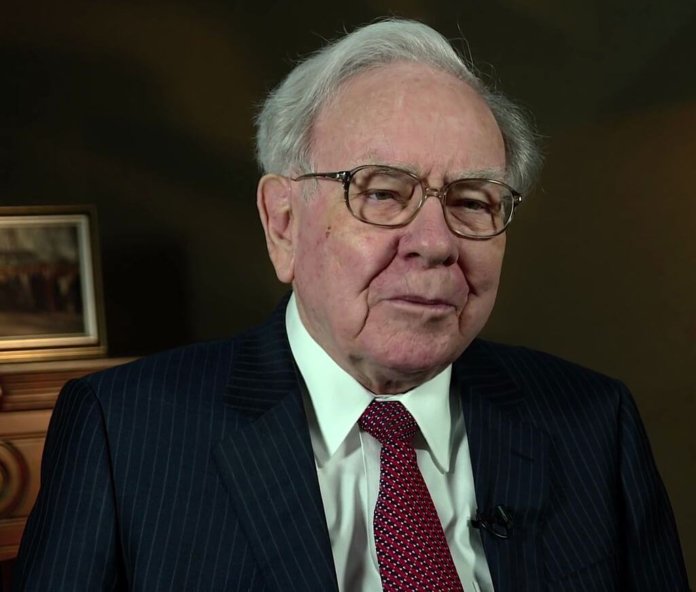
As investment mistakes go, this is one many of us would like to make. Warren Buffett, nicknamed the “Oracle of Omaha” for his legendary track record, may surprise you with what he considers to be his biggest investment mistake.
“The dumbest stock I ever bought was, drum roll here, Berkshire Hathaway,” he said in a 2010 interview with CNBC.
That may seem like an odd statement considering Berkshire Hathaway is widely regarded as one of the largest and most successful parent companies in the world. It has significant holdings in the insurance (GEICO), airline (American Airlines, Southwest Airlines), and manufacturing and textile (Fruit of the Loom) industries just to name a few. The Forbes Global 2000 List ranks Berkshire Hathaway as the third largest public company in the world, and the ninth largest conglomerate in terms of revenue.
So why was it such a mistake and why then, did he do it? The answers to both of those questions can be quite instructive for other business owners and investors today.
When Buffett was in his early 30’s, he was running a small hedge fund when he noticed that every time a failing textile company named Berkshire Hathaway closed a mill, its stock price would go up. He started acquiring stock and one day, he was approached by the CEO, Seabury Stanton about selling Buffett’s stock back to the company. They verbally agreed to a sale price of $11.50 per share. But when the formal tender letter came in the mail, the stock price was listed at 11 3/8.
“He chiseled me for an eighth,” Buffett told CNBC. “And if that letter had come through with 11 and a half, I would have tendered my stock. But this made me mad. So I went out and started buying the stock, and I bought control of the company, and fired Mr. Stanton.”
Lesson Learned
Some in his position may look back on the incident with great pride. A morality tale on the cost of underhanded business practices or a shining example of cutthroat business techniques. Buffett doesn’t look back on the incident with pride, only regret. He realizes that by acting on emotion, he cost himself almost $200 billion since the time of that purchase.
“Berkshire Hathaway became the base for everything pretty much that I’ve done since. So in 1967, when a good insurance company came along, I bought it for Berkshire Hathaway. I really should have bought it for a new entity,” he said. “(If) instead of putting that money into the textile business originally, we just started out with the insurance company, Berkshire would be worth twice as much as it is now.”
In the masterclass that is the career of Warren Buffett, this is lesson #1 – Never act on emotion. Buffett often likes to quote his mentor Benjamin Graham by saying, “Investment is most intelligent when it is most businesslike.”
The Insurance Linchpin
As he noted in looking back on his early days as the owner of Berkshire Hathaway, one of the most important moves he made was getting into the insurance business. In 1967 his first foray into Insurance came with the purchase of the National Indemnity Company. A few years later, Berkshire acquired an equity stake in the Government Employees Insurance Company (GEICO). The purchase of these two companies were the cornerstones of everything that would come after.
This wasn’t because these were necessarily better companies than their competitors. It’s because Buffet was able to see how he could leverage these businesses to take advantage of other opportunities. This brings us to lesson #2 – Look for the opportunity behind the opportunity.
When an insurance company collects premiums, it has a pool of money from which it pays out individual claims. This pool is known as ‘the float’ and it can be used to finance other investments. This float is how Buffet was able to use his insurance companies to build his empire.
“A good part of Buffett’s investment success at Berkshire Hathaway is because he’s been able to fund investments at a cost of capital below just about everyone else in the market. That’s not to slight it, that’s a very clever thing to do,” Forbes observed in a piece from May of last year.
Letters From The Master
The Berkshire Hathaway Annual Shareholders General Meeting is held in Omaha, Nebraska where the company is headquartered. The event draws on average more than 20,000 people each year. The highlight of the event is often Buffet’s letter to shareholders which is included in the official report to shareholders. The letters are often frank, conversational, and instructive in the strategies and techniques of investing.
One such lesson came when he was speaking of two small investments he made in his younger days. These weren’t huge cash payouts for him, but he learned the value in understanding the underlying business behind the stock price. This is lesson #3 – when it comes to investing, focus on the business, not the stock.
“With my two small investments, I thought only of what the properties would produce and cared not at all about their daily valuations. Games are won by players who focus on the playing field – not by those whose eyes are glued to the scoreboard.”
Another key lesson he touched on involved the importance of setting performance goals. Whether you are overseeing investments or running a business, keep in mind lesson #4 – Establishing performance targets for yourself and your management team is crucial. This is a belief jointly held by Buffet and his long-time business partner, Charlie Munger, the company’s Vice-Chairman.
“Charlie and I believe that those entrusted with handling the funds of others should establish performance goals at the onset of their stewardship. Lacking such standards, managements are tempted to shoot the arrow of performance and then paint the bulls-eye around wherever it lands,” he wrote. “In Berkshire’s case, we long ago told you that our job is to increase per-share intrinsic value at a rate greater than the increase (including dividends) of the S&P 500. In some years we succeed; in others, we fail. But, if we are unable over time to reach that goal, we have done nothing for our investors, who by themselves could have realized an equal or better result by owning an index fund.”
It is clear Buffet holds himself to the same standard of meeting performance goals as everyone else. And it is in this idea of accountability at the top where we find lesson #5 – Admit when you’re wrong and learn from your mistakes.
His initial purchase of Berkshire Hathaway may have been his biggest mistake, but it wasn’t his only one. Over the years Buffet has freely admitted when he messed up and talks about what he learned from it. A great example came in his 2014 letter to shareholders when he talked about the 2013 purchase of Energy Future Holdings
“In addition to our equity holdings, we also invest substantial sums in bonds. Usually, we’ve done well in these. But not always. Most of you have never heard of Energy Future Holdings. Consider yourselves lucky; I certainly wish I hadn’t. The company was formed in 2007 to effect a giant leveraged buyout of electric utility assets in Texas. The equity owners put up $8 billion and borrowed a massive amount in addition. About $2 billion of the debt was purchased by Berkshire, pursuant to a decision I made without consulting with Charlie. That was a big mistake… Next time I’ll call Charlie.”
Whether it’s ego or a fear of appearing vulnerable, very few at the top can so freely admit their missteps the way Buffet does here. But in doing so, he’s able to hold everyone else in the organization to the same level of accountability. His ability to admit his mistakes turns out to be one of his strengths, not one of his weaknesses.
At the risk of engaging in cliché, Warren Buffet is one of a kind. There really will never be another like him. But you don’t have to be an iconic billionaire to employ his strategies and techniques. By following these five simple lessons, anyone can potentially improve their prospects in the coming year.









